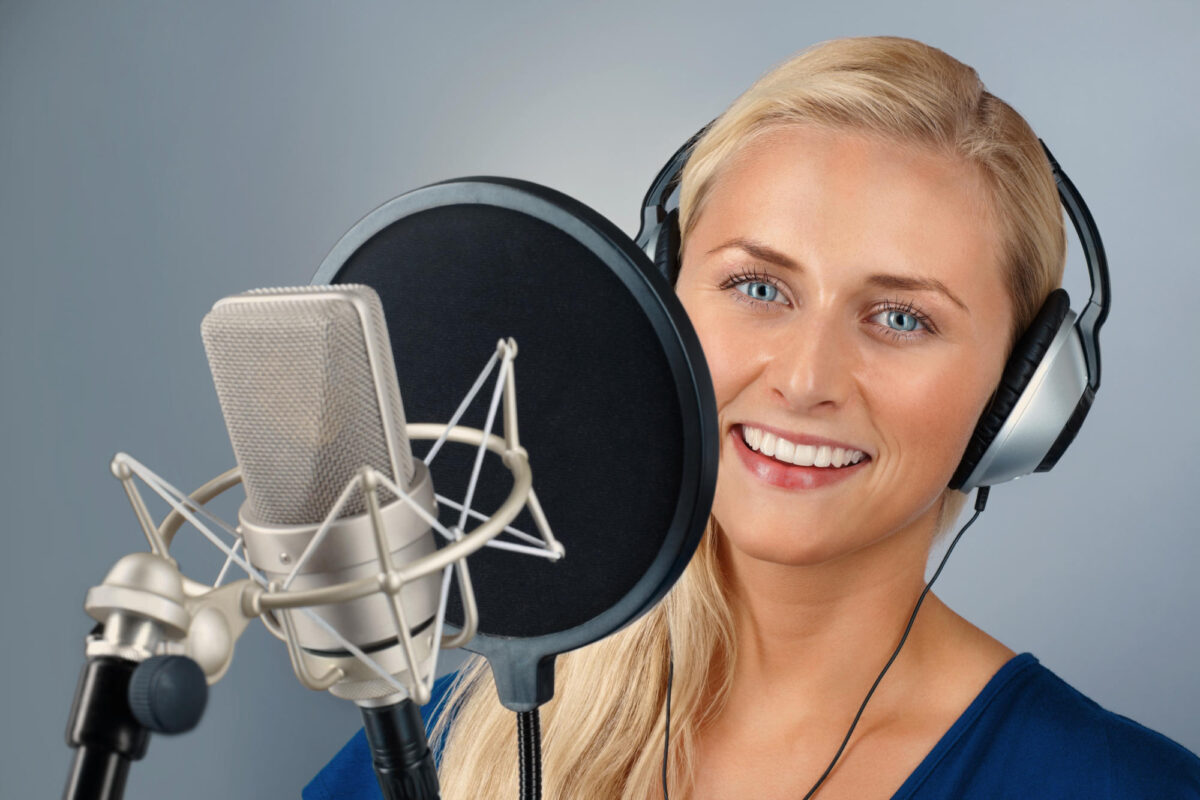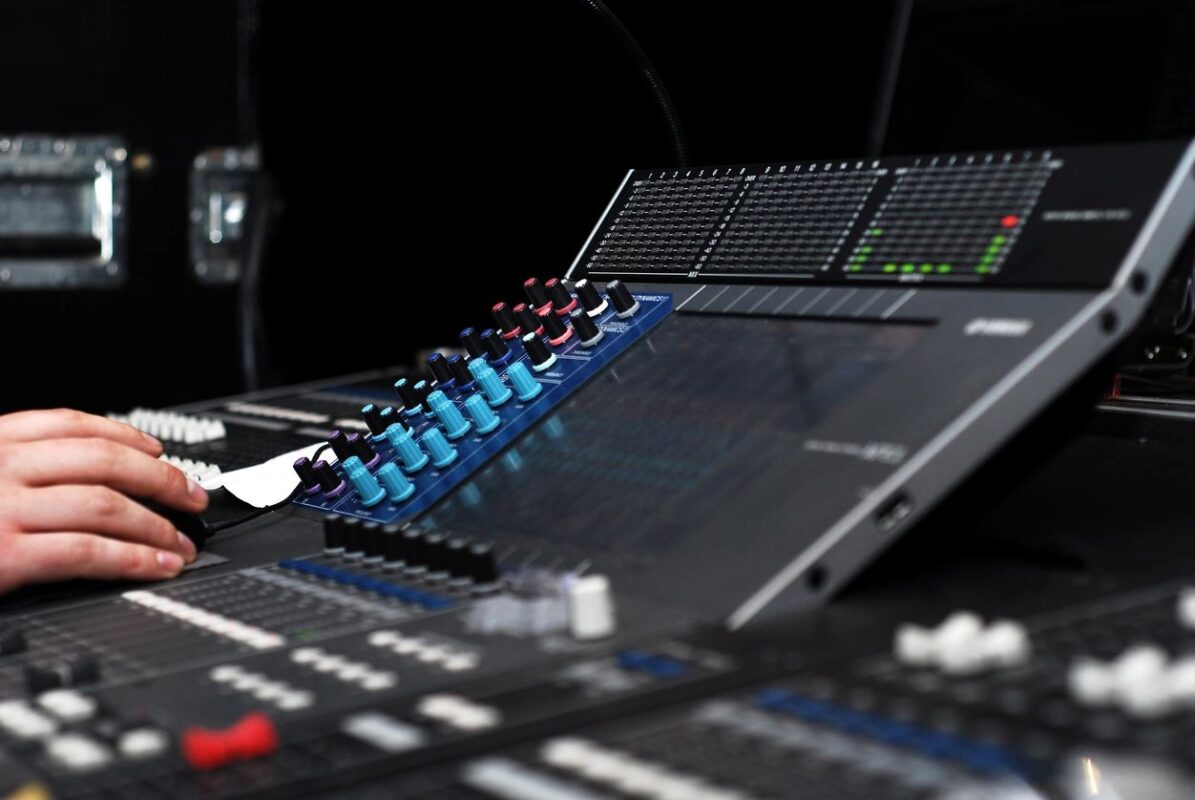

Enlightened Audio Education
Lesson 11
Recording your voice: Professional studio or do it yourself?
When the time comes to record your voice you will have one particularly important decision to make. Will you utilise the services of a professional recording studio or will you record yourself using your own equipment?
20 years ago the answer would have been a simple one. You’d go to a recording studio. But in this day and age, recording yourself is a much simpler and more affordable process.
The equipment needed for recording is more powerful, cheaper and easier to use than ever. In addition to this, the availability of online recording tutorials and forums for recording enthusiasts means that learning how to record yourself is easier than ever too.

For these reasons, it is now possible to bypass recording studios altogether and record professional quality voiceovers in your own home.
Not only is it easier than ever to record yourself, the internet makes it easy for you to publish your recordings too. There are so many different avenues that you can use to reach people with your recordings. We’ll get into those opportunities a little later.
Having said all of this, there are some real benefits to recording at a professional studio, so to help you in your decision let’s look at some of the pros and cons of each approach.
Recording at a studio – The benefits
Time saving
There is no need for you to spend any time learning anything about recording technology and audio production techniques. You can relax and let the experts at the studio take care of all that for you.
Zero equipment costs
You won’t spend any money at all on recording equipment like microphones.
Access to high quality facilities
The equipment and facilities that you will have access to at a professional recording studio will most likely be of a very high quality – much higher than the average home studio setup.
Quality is guaranteed
You are guaranteed to get an absolutely top-notch recording. You’ll have access to great quality microphones, the assistance of professional audio engineers and most importantly, a soundproofed recording room. You certainly won’t have to worry about the dog next door barking and spoiling your recording.
“Take a deep breath in and feel yourself beginning to relax… WOOF WOOF!”
Recording at a studio – The downsides
Hourly rates
You’ll pay an hourly rate to use a recording studio. So, every time you wish to do a new recording, you’ll have studio rates to pay.
TIP – If you have a few recordings to create and you have the scripts ready to go, then consider bundling multiple recordings into one session. Some recording studios will provide better rates if you utilise their services for a full day, or a half-day for example, rather than dropping in for an hour or two.
Out of your comfort zone?
For some people, recording at a studio may be less relaxing than recording in the privacy and comfort of their own home. On the other hand, having a professional recording engineer available to help you with your recording can be comforting too. This is a personal factor that’s different for everyone.
When a recording studio is a good idea…
If you are not already equipped with the technology and the skills to record yourself, and if you only intend to create one or two recordings, then choosing to record your voiceover in a professional studio is a fantastic option. The money you will save on equipment and the time you will save coming to grips with the recording process will be better spent on studio time.
By the way, in an upcoming lesson we will look at some great ways to make your time at the studio more efficient and more cost effective.

Recording yourself with your own equipment – The benefits
No hourly rates
Once you have your own recording equipment, there are no studio fees or hourly rates to pay. This means that you are free to create an unlimited number of recordings with no ongoing production costs. Over time you could produce a large and valuable collection of recordings that, when calculated on a “per recording basis” would cost very little to create.
Note: In an upcoming lesson, we will explore exactly what recording equipment you will require to create your own recordings. Detailed information and cost saving tips are coming in abundance.
No rush
You can take your time with your recordings. Hey, there are no studio rates to pay, so what’s the rush? Coffee break anyone?
Working in your comfort zone
You can enjoy creating your recordings in your own way, in your own time, in your own home. For many people this can be a really big plus. I know some meditation teachers who like to practice formal meditation techniques before narrating their recording. It’s important for them to feel spiritually connected and to be in an environment that has great energy during the recording process. This is a lot easier to achieve in your own personal space.
Immediate access
Having your own recording equipment means that you can record when you feel like it. You don’t need to make a studio booking in advance. Having your own recording equipment at hand also opens up the possibility of creating “spontaneous recordings”. If the mood strikes you and a recording project leaps to mind, you can fire up your computer, plug in your microphone and you’re away! Inspiration captured!
Enhanced client services
Some therapists use their recording equipment on a regular basis as a way to enhance the treatment that they provide to their patients. For example, some hypnotherapists will create ad hoc recordings for their clients, customising them to their client’s needs at any particular time.
Fun!
If you are a creative person, or someone who is enthusiastic about creating audio or video productions, then having some recording equipment on hand will give you the opportunity to freely express yourself in these media formats and have a lot of fun doing so. Hey, having fun is just as valid a reason to own recording equipment as any other in this list!
Recording yourself with your own equipment – The downsides
Equipment costs
If you do not already own any recording equipment, then there will be some moderate up-front costs to take care of.
The learning curve
Learning to use recording equipment properly can be a bit of a technical hurdle for people who are unfamiliar with computers or basic day to day technology. Some people take to recording like a duck to water, but if you are the type of person who is so averse to technology that you can’t use a digital camera or program your alarm clock to go off at the right time, then coming to grips with recording technology may cause you some frustration.
A quiet recording space is a must
In order to record yourself you will need a quiet place to record. For some people, especially those living in built up areas, this can be difficult to achieve at home. You won’t need a soundproofed studio quality room, but you will need access to a room that is reasonably quiet for at least part of the day.
When recording yourself is a good idea…
It’s fairly quiet at your home. You don’t live beside a highway, your next-door neighbour is not a chainsaw enthusiast, and your children actually listen when you say, “Quiet please”. You like the idea of producing more than one or two recordings. You are not a complete technophobe, and you are willing to learn a few new skills.

A Third Option – Project Studios & “Mates Rates”
Chances are you already know a competent someone, who has a home recording studio, or at least a spare room with a good quality microphone on standby. If you have a friend or family member who fits this description, then it might be possible for you to take the simplest and most cost-effective recording route of all – recording in a private residence with the help of a friend.
The beauty of this approach is that you will probably have a lot of fun together, whilst still achieving a high-quality result. You’re bound to pay a lot less to use your friend’s recording equipment than you would pay to use a professional studio too. If your friend is someone you are close to, then you can probably bribe them with hugs and / or cake. (That always works on me.)
I do recommend this approach if you can wangle it. You will completely avoid the financial cost of purchasing any recording equipment and the mental cost of learning how to use it.
HOWEVER…
You need to make sure that the person you are working with has a suitable level of technical ability and their project studio includes some decent quality recording equipment before you dive in. If you are a newcomer to recording, then this can be a little hard to assess, but as a rough guideline your friend should be able to answer all the following questions in the affirmative:
- Do they have a quiet recording space (or at least one that is reasonably quiet at certain times of the day)?
- Do they have a good quality microphone that’s suited to recording speech?
- Do they know how to use their equipment and record you properly?
- Do they know how to mix your vocals with your music?
- Do they know how to produce a finished audio file of your recording?
If your friend can tick all these boxes, then you may well be able to conduct your recording in the familiar comfort of their home studio.
CongrATULATIONS!
You have reached the end of Enlightened Audio Education Stage 1.





